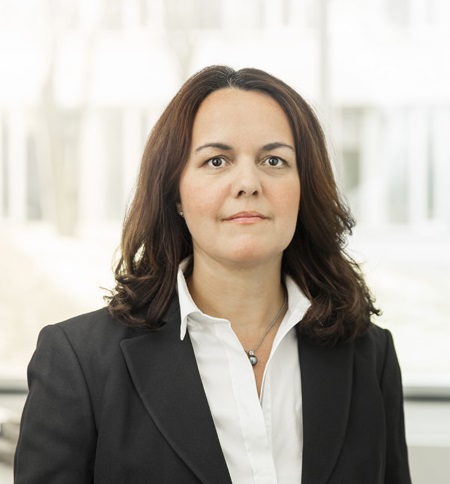Susanne Kratzsch MCIArb
Dr. Susanne Kratzsch is a German lawyer, arbitrator and mediator in Stuttgart. Her practice focuses on international legal transactions, industrial plant, machinery construction and product liability. She has experience in arbitrations conducted under the ICC, VIAC, DIS, NAI and the Swiss Arbitration Rules
Why have you decided to specialise in ADR? What attracted you to this area of law?
I have always enjoyed broadening my own horizon and I have always had a lot of interest in different cultures. This interest and curiosity has accompanied me throughout my legal studies and it has had an impact on them. When I was given the opportunity of working with a famous international arbitrator, I discovered that working in the area of ADR would enable me to live my passion and curiosity not only at a private level when travelling, but that I could actually use my language skills and discover other jurisdictions and at the same time help parties in international disputes settle these disputes
What do you consider to be the biggest challenge in your career as a female practitioner in arbitration?
The biggest challenge in my career is gaining the respect of the clients. When you are still young, they do not take you for serious. They consider you to be “the small assistant” of an important male lawyer or arbitrator and you have to struggle in order to convince them that you are as good as any male (or senior or both) colleague. I had one experience when I was still a baby lawyer which made this very obvious. I had worked for a client for many months, had collected the information from him, drafted and discussed the submissions with him and when it came to the hearing we had a telephone conversation in which he was very worried to learn that I would be the one to go to this hearing with him, just because he thought that a senior male colleague would be the best choice for this task. Even though I am far from being a supporter of the idea that women have to stand up in order to be treated equal in their professional (in comparison to men), reality demonstrates that women still have to fight more to be accepted (and remunerated) equal to their male colleagues.
What do you consider as the biggest challenge for the ADR in the future?
I think that the biggest challenge will be to keep the user happy with ADR. I have experienced some cases in which – due to poor performance of the arbitrators/ mediators – the users left the proceedings unhappy and some of them even with the idea of “never again”. We, as ADR professionals, have to ensure to maintain a high standard of our professional work in order to give the users comfort that their disputes are “in good hands” when handled by us instead of the state courts.
If you had a time machine, what piece of advice would you give to yourself at the beginning of your career in ADR?
I think I would travel even more, attend more international conferences, learn even more about other jurisdictions and try to get to know more colleagues all over the globe. In my view, working in ADR is about having an open mind, knowledge about how the clocks run elsewhere and having a good network to rely on.
How has a membership with the Chartered Institute of Arbitrators benefitted your career?
My membership has helped me a lot in terms getting to know colleagues from abroad an building up a good network of colleagues. I made many important contacts on the occasion of CIArb conferences. I have to admit that in Continental Europe the CIArb titles are not as important as they may be in the UK. However, there are – at least to my knowledge – no other arbitration associations that cover so many spots on this globe which makes my membership in CIArb so valuable.
Tell us about your interests, hobbies or any out of work activities.
For the sake of never losing touch with reality in this speedy and sometimes crazy business world, I keep two horses and spend a lot of my spare time working outside with them, doing walks and rides in the woods. Horses are a perfect mirror of the human working with them. They bring you down to the ground and offer new perspectives in situations in which one might tend to loose the sense for the essential.
If you could meet for a dinner a famous person, dead or alive, who would that be?
Leonard Cohen – who has written the most beautiful poems and sung the most beautiful songs
